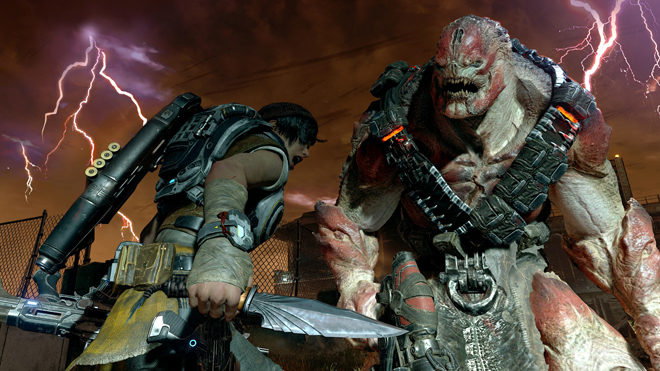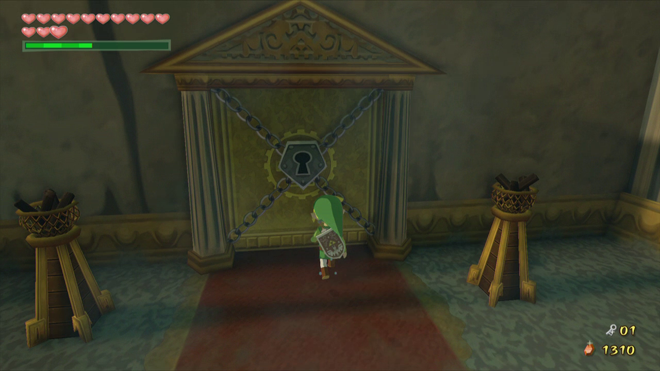Cognition Dissemination: The State of Console-Exclusive Software
The future of first-party games is grim, and this was sadly inevitable.
If you give it some serious thought, it’s not surprising that the number of first-party software releases from hardware manufacturers has perpetually dwindled over the years. With technological increases made over the years, games have become more difficult and expensive to make. Sure, you could say that’s been the case for most video games and their developers, but that’s far more devastating for games exclusive to one platform. After all, they often cost just as much to make as their third-party counterparts, but don’t have the benefit of releasing on every system that can run it. The current predicament of slim pickings among first-party games was bound to happen.
In fairness, this console generation hasn’t been quite as bad for Microsoft’s software output as predicted, but they were forced into this critical decision. The company was sharply criticized after they reduced their first-party output during the Xbox 360’s life, just as it was coming into its own with big titles like the Halo and Gears of War games, and smaller efforts like Blue Dragon and Lost Odyssey. It was unsurprisingly titles like the latter ones that got the boot, as they started focusing more on third-party partnerships with games like Activision’s Call of Duty titles.

In this sense, it’s actually good that the Xbox One stumbled out of the gate, as it was a wake-up call for Microsoft to strengthen their publishing efforts. While Halo and Gears of War are still alive (with Gears of War 4 coming a week from Tuesday), original titles like Quantum Break, Sunset Overdrive, and Scalebound have manifested thanks to their renewed commitment. Not to say they haven’t suffered setbacks, as they closed two developers, Lionhead and Press Play, earlier this year. But their future looks brighter than it did.
It was tough for them to sell as well as they can when they were bound to a system merely doing OK, compared to the more successful PlayStation 4 worldwide. That explains why Xbox Play Anywhere debuted. Now every XB1 game is also receiving a PC release, and players can cross-buy games between both platforms. The catch, of course, is that they can’t be played on Steam (at least, not initially), but the payoff is good enough.
This new strategy could lead to further questions in the semi-distant future, like whether Microsoft will continue making dedicated gaming hardware when all of their games can also be acquired on PC. That may not happen with the upcoming Project Scorpio, but who knows what twists could lie beyond that.

Meanwhile, Sony has followed nearly the opposite trajectory. They developed a healthy lineup of their own during the PlayStation 3’s life, with big titles like the Uncharted and Infamous franchises, continuations like the Ratchet & Clank games, and smaller titles like Folklore and Puppeteer. This, sadly, was bound to taper off with the PS4, due to the aforementioned point of games becoming more expensive to develop. But that’s also due to Sony taking a page out of Microsoft’s last-gen book with third-party partnerships, incidentally including Call of Duty. Sony’s current lineup still beats Microsoft’s last-gen one, but it’s noticeably emptier compared to the PS3’s line, and this trend will continue.
Of course, that’s not helped by Sony having some recent layoffs and studio closures of their own. Earlier this year, they closed Driveclub and Motorstorm-developer Evolution Studios, which fortuitously came shortly after Microsoft’s Lionhead closure. (Both studios are based in Europe.) They also recently laid off staff at both their San Diego and London-based studios, the latter of which had recently finished PlayStation VR Worlds, which will release alongside the similarly-named device next month. As tough as it is to see, this will likely be a continuing trend as the company cuts down staff to focus on a smaller-but-steadier number of hits.

Don’t worry, I haven’t forgotten about Nintendo, though they’re currently in a lull. They still haven’t unveiled the NX, which is (supposedly?) releasing in March 2017. So their lineup of big budget first-party games is still unknown outside of The Legend of Zelda: Breath of the Wild, which is coming to both Wii U and NX. That aside, they have a series of smaller games and ports on their way to 3DS, which were shown in detail on a Nintendo Direct a month ago. Their only upcoming console game besides Zelda is Paper Mario: Color Splash, which will release next week — unless you’re already playing it. I’m certain Nintendo will maintain the trend of having the best first-party lineup out of every other hardware manufacturer, despite that sometimes being in lieu of good third-party support.
This predicament will make the future of dedicated consoles all the more interesting, as software lineups for Sony and Microsoft’s offerings have become so homogenous that exclusives matter that much more. But they won’t get the chance to make a difference when they’re becoming too difficult to make. That, or they also need to be released on PC to profit, meaning they won’t be exclusives despite that move being beneficial for a larger audience. We’re moving into a future where systems won’t have their own identity formed by first-party software, with third-parties providing their own exclusives alongside that. That’s sad for those of us with plenty of nostalgia for consoles whose lineups were made up of exclusive software, but developers have to look out for what’s more sustainable.
In the meantime, though, we should enjoy these exclusives while we have them — especially on Nintendo platforms.






